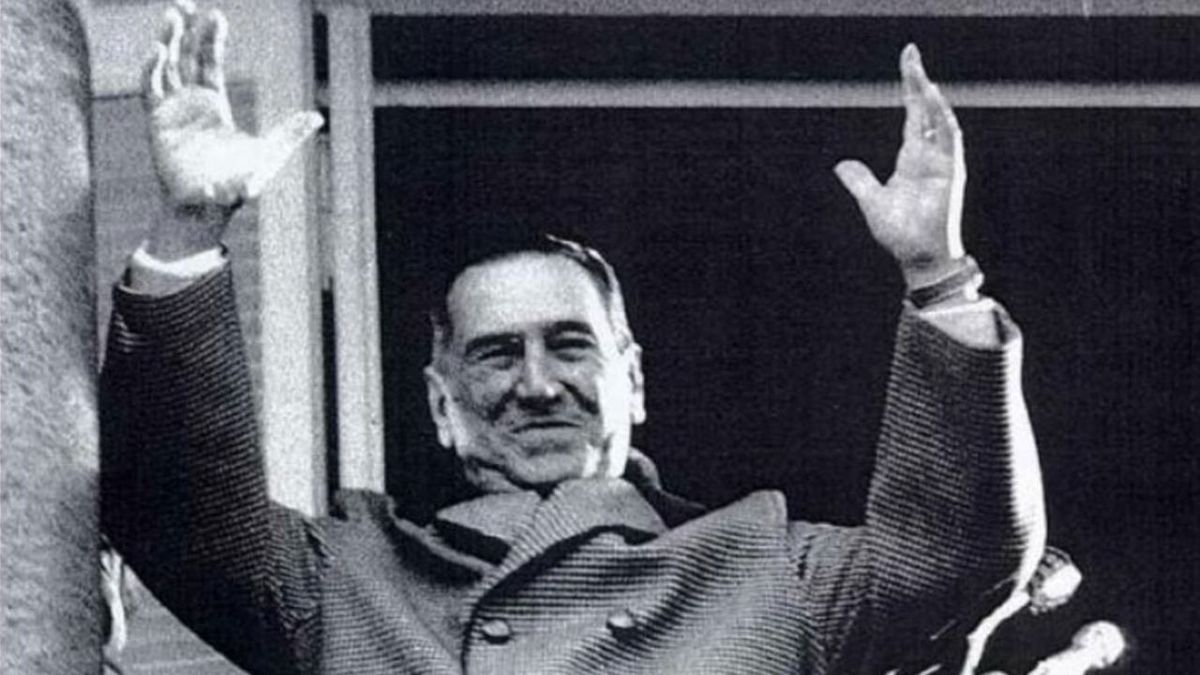In August 2015, we knew that Argentina had a fiscal deficit, but it was not the highest in history, nor was it the most difficult to solve. Before, we had had enormous macroeconomic upheavals seasoned with excessive indebtedness that made the task of restoring balance very complex. From the complexity posed by the serial adjusters, it could be inferred that they were setting the stage for a violent devaluation. Macri spoke of freeing the dollar and having the market set a price for it. That was going for a shock plan and subjecting the economy to sudden changes, a very recessive plan with a high social cost, which we had already tried ad nauseam.
THE ONLY TRUTH IS REALITY (JD PERON)
Faced with the harsh reality that Macri was going to leave behind, the veil was drawn away, and you could see that the IMF financed capital flight, payment to US banks and investors that had defaultedand that did not appeal to those who hoped to escape the annals of international and local history.
The story of “the last 70 years” was reinstalled, as we stated beforebecause none of the architects of the worst government since the return to democracy, nor those who supported the largest looting in Argentine history took charge. No one wanted to debate with dignity how Argentina would do to repair its economy and get out of the resounding failure of the Cambiemos government, with all the macroeconomic and social indices devastated.
In addition, Macri was leaving and leaving problems of competitiveness, weakening of competition and quasi-monopoly income in the hands of economic groups, like in no other country in the world. The memories of the corralito, the corralón, the asymmetric pesification, the Bonex Plan, with neoliberal governments left great sequels to which the Macrista experience was added. Thus, society had once again been violated as in those crises, but this time, thanks to the assistance of the IMF and the containment of the social movements and the CGT, there was no terminal financial crisis and no social reaction, in the midst of the rise in country risk, while they continued to flee capital, and withdraw deposits from the banking system, fleeing the ordeal of the Macrista government.
In this congruence, they invented something really creative, the Peronismo-Kirchnerista that had won the PASO, was responsible for the earthquake that had started in January 2018, for the financial and real variables, significantly aggravating the inheritance that the next administration would receive.
Nothing like this ever happened, said an economist who supported the Cambiemos government. Neither in the transition when the Broad Front won in Uruguay, Lula in Brazil, nor Correa or even Sandinismo in Nicaragua, nor when Salvador Allende or Getulio Vargas came to power some time ago. Clearly Alberto Fernández could not exceed the risk levels of the most radical left, nor the South American populisms. So that It was not Alberto Fernández who built a colossal disaster, but the 4 years of the Macrista government who came to pass the bill for all the excesses perpetrated.
The macroeconomic vulnerability founded by neoliberal governments in Latin American countries, the memory of the end of each of their experiences that ended in macroeconomic crises, causing financial and exchange rate debacles, which in turn made their economic programs implode as “the bicycle” of Martínez de Hoz with his “tablet”, the Austral Plan and Convertibility. After the result of the PASO and the suspension of IMF disbursements, the real financial and exchange rate earthquake arrived, the program with the IMF collapsed.
The emergency program with the Fund launched in October 2018 sought that the Central Bank safeguard the reserves, for which demanding goals of net international reserves were set, which implied that said reserves could not be used to sell dollars in the exchange market and currencies. to the Treasury against pesos or bills, in order to pay public debt. In addition, the program with the IMF sought to prevent the BCRA from issuing pesos, for which increasingly contractive monetary targets were set, with the aim of the government reaching a “zero primary fiscal deficit.” But the earthquake coincided with the withdrawal of support after PASO, when they realized that when Macri lost the elections, the program would collapse and the IMF withdrew its support again (cancelled the disbursements), just like Cavallo did in 2001.
Reserves were sold by troche and moche, the BCRA returned to issuing pesos and the national government did not meet the goal of a zero primary deficit. The reality was that Argentina had once again been left without the support of the IMF because it did not adjust to the program, which was not even a stabilization program for a country with high inflation, but simply a program that sought to avoid the default of the public debt. and the spiraling of the inflation rate, although it did not achieve those objectives, nor did it manage to leave the recession behind.
Argentine history once again demonstrated that, since the coup d’état of March 1976, the recurring macroeconomic crises arising from the application of neoliberal policies, had caused immense damage to GDP per capita (with Macri it fell more than 10% according to Federico Sturzenegger ). Macroeconomic crises have devastating effects in the short term: a fall in GDP, an increase in poverty, a maxi-devaluation, an acceleration of inflation, but they also mortgage the standard of living of future generations.
Director of the Hope Foundation. https://fundacionesperanza.com.ar/ Graduate Professor UBA and Masters in private universities. Master in International Economic Policy, Doctor in Political Science, author of 6 books
Source: Ambito
David William is a talented author who has made a name for himself in the world of writing. He is a professional author who writes on a wide range of topics, from general interest to opinion news. David is currently working as a writer at 24 hours worlds where he brings his unique perspective and in-depth research to his articles, making them both informative and engaging.




